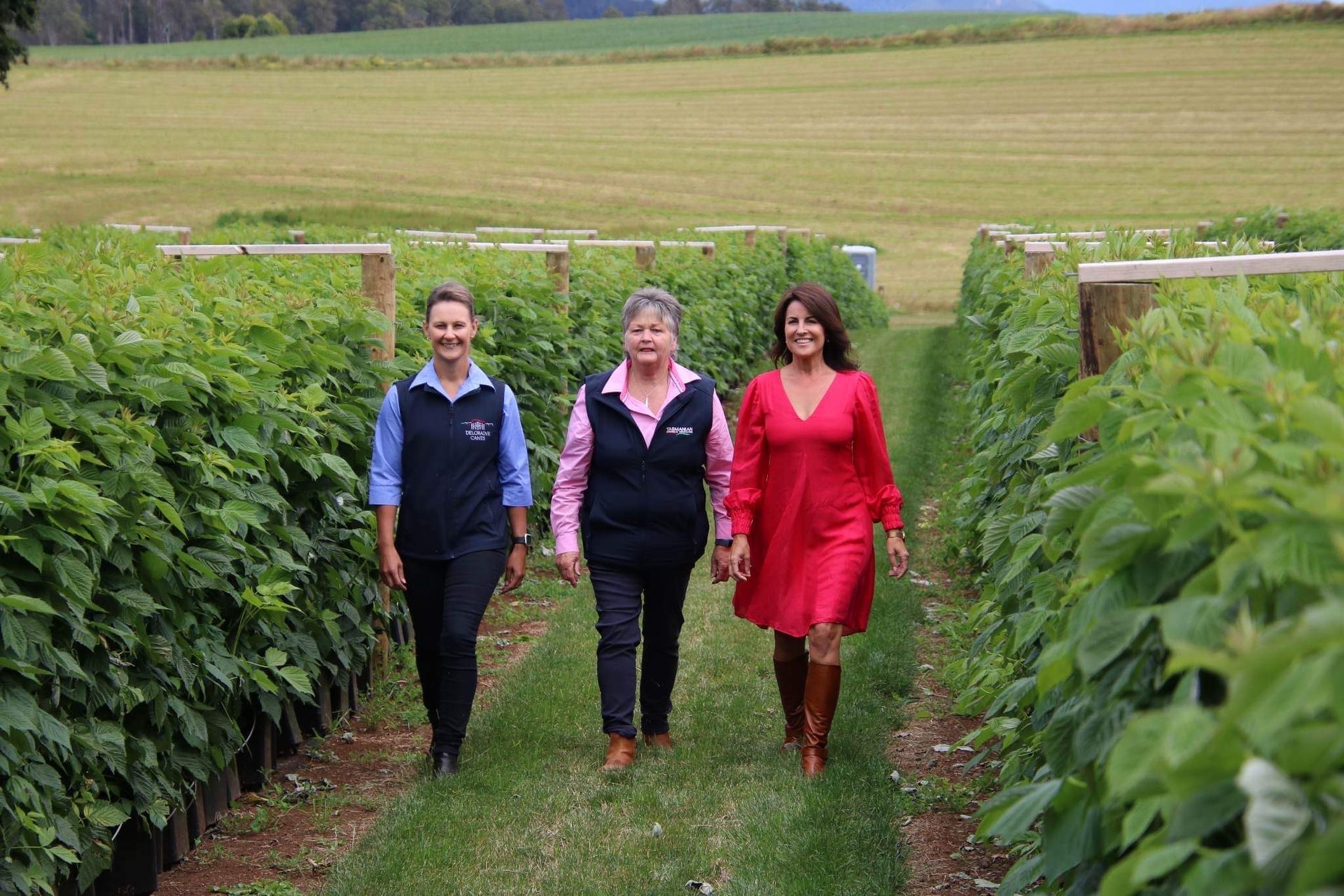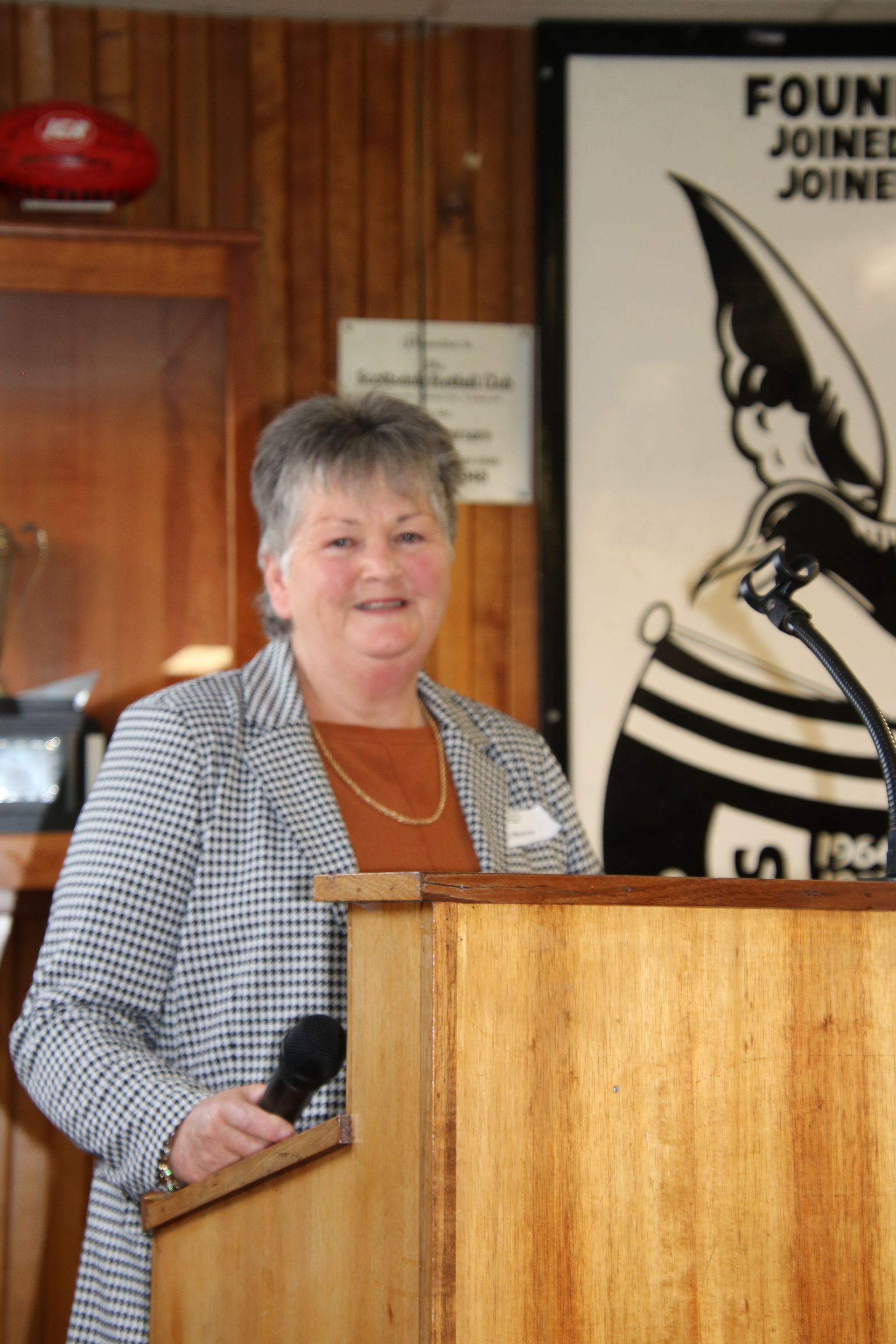Deb Morice is the Chair of Tasmanian Women in Agriculture.
Advocacy from the Apple Isle: women in leadership
With nearly 45 years’ industry experience, Deb Morice could write a book about the challenges she has faced. As the chair of Tasmanian Women in Agriculture, she helps empower women and celebrate their contributions.
I was born on a farm and grew up into the industry, where my husband and I eventually owned 700 cows. Early in my career, I quickly learned that I needed to trust myself, know where I stand, and make sure my voice was being heard. I became acutely aware that if our farm was to remain competitive and meet agriculture’s economic and social challenges, a personal priority was to strengthen my leadership acumen and farm management skills. It was also important that I remained connected to and supported by other female farmers.
I was not alone. In 1994, a group of like-minded women started not-for-profit organisation Tasmanian Women in Agriculture (TWiA) to celebrate women's contributions, promote networking opportunities, and cultivate connections. I was there for the very first TWiA gathering.
My conversations with female farmers ran along similar themes. Our contributions, we observed, were undervalued and women overall were underrepresented. Women remained financially and socially disadvantaged too despite their contribution to both on-farm and off-farm income. Further, women bore the majority of family care and household responsibilities. Some were also isolated, while others suffered domestic violence and lacked access to essential services.
There are now many women in agriculture advocacy organisations who are lobbying to influence government policy in these and other areas. Core objectives are improved farm safety, better rural services, and relief from rising costs of living. The acknowledgement of women as equal participants in agricultural businesses is also championed heavily.
Ensuring women's contributions are valued makes good economic sense for Australian agriculture. The current dearth of women in leadership contributes to economic loss across the whole industry. The sector needs greater female inclusivity on boards, in senior leadership positions, and in everyday farming decision making.
The lack of inclusivity limits innovation and resilience at a time when our best resources are needed to meet the many challenges our industry faces. Womens’ contributions are critical to support rural communities and manage the challenges of loss of productive land, diversification of farm income, declining soil fertility, biodiversity loss, climate change, and extreme weather events, while coping with increased production costs and a shrinking workforce.
Men and women process information, relate to one another, and experience leadership and empowerment differently. The value of recognising these different learning styles and supporting women's decision-making and leadership capacity in managing agricultural resources cannot be underestimated: boosting farm productivity and economic and social benefits for women themselves, their households, and their communities.
Building connections facilitated by networking is known to help rural women and their communities. e.g., gender-safe learning programs and encouraging women to participate fully in decisions affecting their family farms and business ventures.
In Tasmania, the state government offers industry bodies like TWiA the Strategic Industry Partnership Program that helps these organisations support women with their business ventures and family farms. The program aims to deliver notable outcomes in farm safety, and succession planning.
Women can, as I do, draw on all the skills and resilience they have acquired to meet the challenges of being part of a male-dominated industry. Those trying times will make a woman stronger and give her more resolve. Women are in many ways the backbone of farming communities, and their unique insights and talents are worth recognising and celebrating.

















